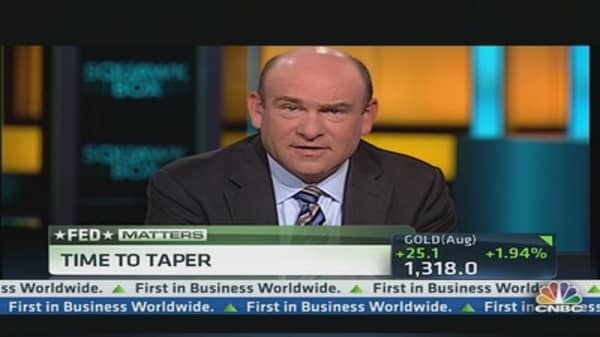U.S. Federal Reserve Chairman Ben Bernanke will always be remembered for saving Wall Street after the financial crash of 2008. But according to some analysts, his legacy will actually be dictated by the unwinding of the central bank's quantitative easing program (QE) and how that affects emerging markets.
Speculative capital flows, triggered by the Fed's ultra-loose monetary policy, is fast exiting emerging markets, confirming worries over the negative consequences of QE. This, according to the analysts at Bank of America Merrill Lynch, is Bernanke's "financial stability blackspot" which could alter how the central bank chairman could be perceived in the history books.
"Bernanke's legacy may depend, in part, on how policymakers in the emerging market (EM) world manage the massive wave of global liquidity and its aftermath. EM risks support our view that the USD is poised to continue its outperformance in coming years," Brian Smedley, a rates strategist at the bank, said in a research note on Friday.
(Read More: World needs US economy off steroids: OECD's Gurria)
The Federal Reserve's $85 billion a month bond buying program has provided a steady stream of cash into emerging markets searching for higher returns. However, the central bank indicated last month that low interest rates and extra liquidity won't last forever and this stimulus could be "tapered" before the end of the year.
Capital has disappeared from EM economies, as investors reassess their positions, and analysts indicate that the emerging market bull run has come to an end. Asia's top performing stock markets, including those in the Philippines, Thailand and Indonesia, have erased a sizable portion of the year's gains, and are down around 9 percent since May, when concerns were first raised.
Currencies have also tumbled. For instance, South Africa's rand has since fallen 4.5 percent against the dollar, and the Brazilian real and Malaysian ringgit has both clocked-up declines of 3.5 percent since mid-May.





